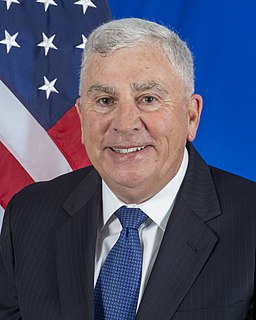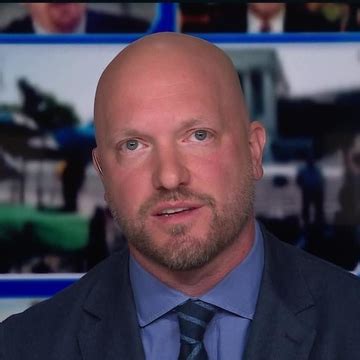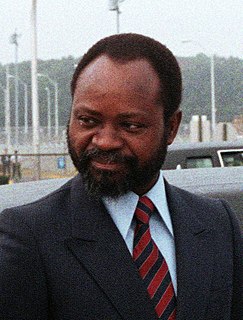A Quote by John Abizaid
I think you also understand that one of the key things that's got to be done in Iraq is to build a mentality of understanding that the military needs to be subordinate to civilian control and respectful of its own people.
Related Quotes
What matters is that in this Iraq campaign that we clarify the different points of view. And there are a lot of people in the Democratic Party who believe that the best course of action is to leave Iraq before the job is done. Period. And they're wrong. And the American people have got to understand the consequence of leaving Iraq before the job is done. We're not going to leave Iraq before the job is done and we'll complete the mission in Iraq.
The intellectual and moral failures common to America's general officer corps in Vietnam and Iraq constitute a crisis in American generalship. Any explanation that fixes culpability on individuals is insufficient. No one leader, civilian or military, caused failure in Vietnam or Iraq. Different military and civilian leaders in the two conflicts produced similar results. In both conflicts, the general officer corps designed to advise policymakers, prepare forces and conduct operations failed to perform its intended functions.
One of the things I tell my students is that if you want to understand what's been going on and also what needs to be done, you've got to get out of the blame game. Some people on the left want to blame the rich and corporations. Some people on the right want to blame the poor and government. Either of those frames of reference gets you nowhere and they aren't even truthful. You've got to understand the dynamic itself.
What is and isn't justified by military necessity is, naturally, open to interpretation. One of the key concepts, though, is the law of proportionality. A military attack that results in civilian casualties - 'collateral damage' - is acceptable as long as the military benefits outweigh the price that is paid by humanity.
It's about people coming to an understanding, a realisation that we must bridge the gap, build bridges and make people aware of what's happening. The award gives me the kind of pride and understanding that most people wouldn't think of. It is strengthening the Yolgnu people, but it's also giving strength to Balanda people who otherwise don't have that kind of understanding.
When I talk about feminism and what I think the women's movement needs more of, it's not to detract from anything going on - I think everything going on is fantastic - but there's this missing element. I think we could learn from our detractors a little bit because I feel like they have a plan, a better understanding of things than we necessarily do. You can't change things if you don't understand the other people involved. And if you don't understand yourself, you'll never change.
I think that we're now deep into a struggle for control over the Internet and there are various actors - state, corporate, civic, criminal and military. The great genius of the Internet is its interconnectedness, but this is also what makes it an incredibly difficult problem when things start to go wrong with it and when people exploit for their own purposes.





































